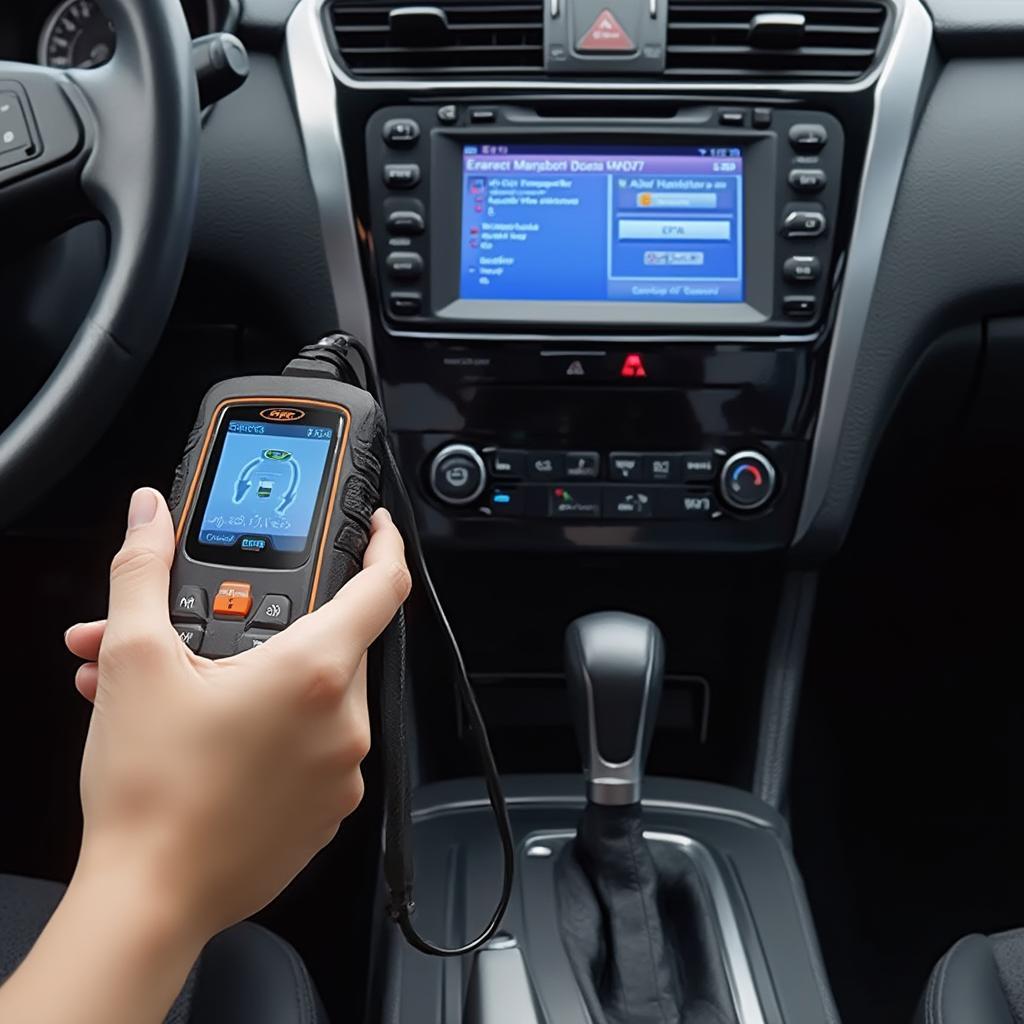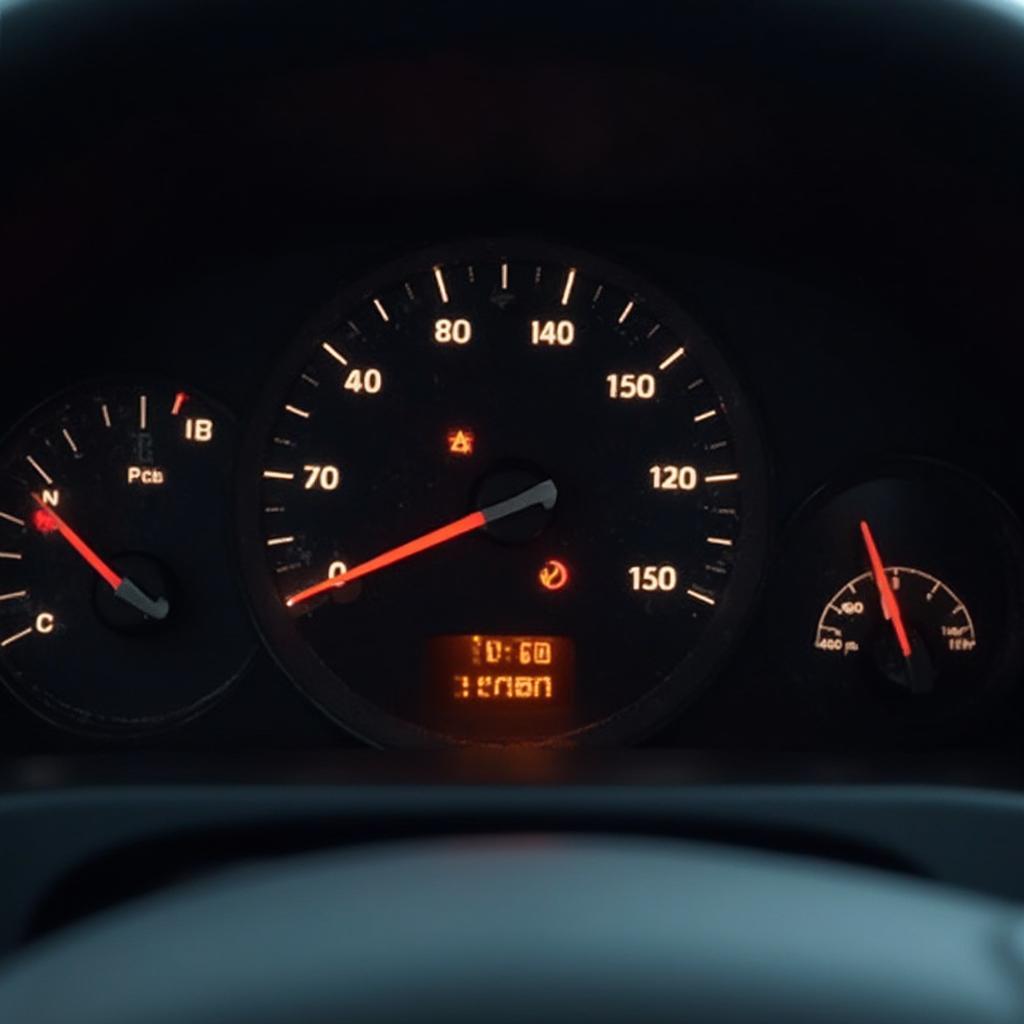Your cart is currently empty!

Erasing Codes OBD2: A Comprehensive Guide
Erasing Codes Obd2 is a common procedure for car owners, but it’s essential to understand the implications and best practices. This guide will walk you through everything you need to know, from understanding why codes appear to how to clear them effectively and safely.
Understanding OBD2 Codes and Erasing Codes OBD2
OBD2, or On-Board Diagnostics II, is a standardized system that allows you to access your vehicle’s diagnostic information. When something goes wrong, your car’s computer stores a diagnostic trouble code (DTC), which is essentially an error code. Erasing these codes, also known as clearing codes, removes them from the system’s memory.
 Erasing OBD2 Codes Process
Erasing OBD2 Codes Process
Why Would You Want to Erase OBD2 Codes?
Several reasons might lead you to erase OBD2 codes:
- After a repair: After fixing the underlying issue, you erase the codes to confirm the repair was successful and to turn off the check engine light.
- To prepare for an emissions test: In some cases, existing codes can prevent you from passing an emissions test, even if the issue is minor.
- To troubleshoot intermittent problems: Erasing codes allows you to see if the issue reoccurs and generates the same code, helping pinpoint the problem.
However, simply erasing codes doesn’t fix the underlying problem. It’s like silencing a fire alarm without addressing the fire.
How to Erase OBD2 Codes: A Step-by-Step Guide
You’ll need an OBD2 scanner to erase codes. Here’s a general guide, but always refer to your scanner’s specific instructions:
- Locate the OBD2 port, usually under the dashboard on the driver’s side.
- Plug the scanner into the port.
- Turn the ignition on, but don’t start the engine.
- Follow the scanner’s prompts to read the codes.
- Select the option to erase codes.
- Confirm the erasure.
ancel ad410 vehicle obd2 engine code reader erase codes
What Happens After Erasing Codes?
The check engine light should turn off after erasing the codes. However, if the underlying problem persists, the light will come back on once the car’s computer detects the issue again.
Common Mistakes to Avoid
- Erasing codes without diagnosing the problem: This can mask serious issues and make troubleshooting more difficult later.
- Using a cheap, unreliable scanner: Invest in a quality scanner to ensure accurate readings and code erasure.
- Ignoring recurring codes: If the same code keeps reappearing, it indicates a persistent problem that needs professional attention.
Can I Erase OBD2 Codes Myself?
Yes, erasing codes is a relatively simple procedure that most car owners can do themselves with an OBD2 scanner. However, if you’re unsure, it’s always best to consult a qualified mechanic.
What if the Code Comes Back After Erasing?
If a code reappears after erasing it, this indicates the underlying problem hasn’t been fixed. Further diagnosis is necessary.
 Car Dashboard Check Engine Light
Car Dashboard Check Engine Light
“Regularly checking and addressing OBD2 codes is a proactive way to maintain your vehicle’s health and prevent costly repairs down the line,” says automotive expert, John Miller, ASE Certified Master Technician.
Erasing Codes OBD2: Best Practices
- Document the codes: Before erasing, write down the codes so you have a record for future reference.
- Address the underlying problem: Erasing codes is only a temporary solution. The real fix is repairing the issue that triggered the code.
- Consult a professional: If you’re unsure about the meaning of a code or how to address it, seek professional help.
“Remember, the OBD2 system is a valuable tool for understanding your car’s health. Don’t ignore its warnings,” advises Sarah Johnson, Automotive Engineer.
Conclusion
Erasing codes OBD2 is a simple but important procedure. Understanding the process and following best practices can help you maintain your vehicle effectively and avoid costly repairs. However, always remember that erasing codes doesn’t fix the underlying problem. Proper diagnosis and repair are essential for long-term vehicle health. Erasing codes is merely a step in the process, not the solution itself.
FAQ
- Can I drive with the check engine light on? While sometimes possible, it’s best to have the issue diagnosed as soon as possible.
- How often should I check my OBD2 codes? Periodically, especially if you notice any changes in your vehicle’s performance.
- Will disconnecting the battery erase codes? Yes, but it’s not the recommended method as it can also reset other vehicle settings.
- Are all OBD2 scanners the same? No, they vary in features and capabilities.
- Can I erase codes without a scanner? No, you need an OBD2 scanner to erase codes.
- What if my scanner can’t erase codes? This could indicate a problem with the scanner or a more complex issue with the vehicle’s computer.
- Do erased codes reappear? Yes, if the underlying problem hasn’t been addressed.
Need more help? Please contact us via WhatsApp: +1(641)206-8880, Email: [email protected] or visit us at 789 Elm Street, San Francisco, CA 94102, USA. Our customer service team is available 24/7.

Leave a Reply